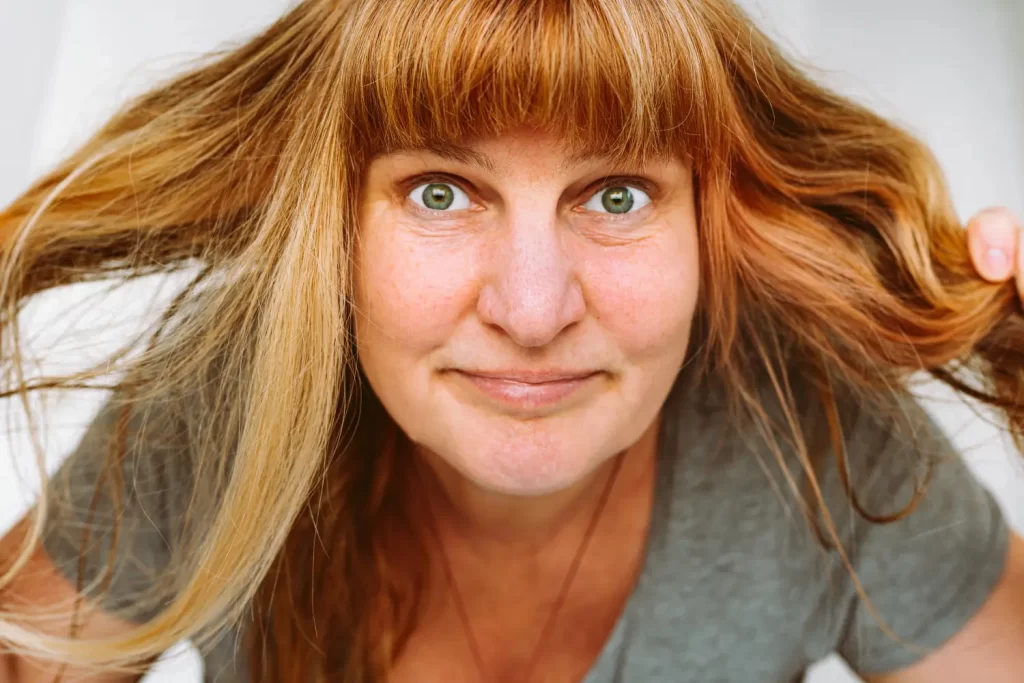
Menopause brings a variety of changes, and one of the most frustrating is its impact on hair health.
If you’ve noticed your hair feeling thinner, drier, or more brittle during menopause, you’re not alone — and the good news is, there are proven ways to nurture and strengthen your hair during this stage of life. In this article, we’ll share simple, effective tips to help you care for your hair with confidence, vitality, and grace.
The first step to taking control of your hair health during menopause is understanding what’s happening beneath the surface. Hormonal changes play the biggest role, and once you know what’s causing the shifts, you’ll feel more empowered to manage them.
As estrogen and progesterone levels decline, the hair’s natural growth cycle becomes disrupted. These hormones normally help keep hair in its growing (anagen) phase longer. With lower levels, hair grows more slowly and may shed more easily. At the same time, menopause can increase your body’s sensitivity to androgens — male hormones like testosterone — which can cause hair follicles to shrink and produce thinner strands over time.
This is why hair care for menopause needs a different approach: one that supports hormonal balance, protects the hair follicles, and nourishes from the scalp outward. Beyond hormones, factors like slower cell renewal, decreased collagen production, and even changes in blood flow to the scalp can contribute to weaker, duller hair. While these changes are natural, they’re not irreversible — and the right care routine can make a remarkable difference.
One of the most noticeable effects of menopause on hair is increased dryness. As estrogen levels dip, the scalp produces less natural oil (sebum), leaving hair strands thirsty for moisture and more vulnerable to breakage.
A foundational part of hair care for menopause is prioritizing hydration at every step. Start by choosing a gentle, sulfate-free shampoo that won’t strip away essential oils. Follow up with a rich, hydrating conditioner to replenish moisture and improve elasticity. For an extra boost, treat your hair to deep conditioning masks or leave-in conditioners once or twice a week — these treatments help seal the hair cuticle, locking in moisture and reducing frizz.
Don’t forget hydration from within, too. Drinking plenty of water supports your scalp’s health, keeps hair follicles nourished, and helps maintain overall vitality. Hydrated hair is stronger, shinier, and far better equipped to handle the changes that menopause brings.
Healthy hair starts with a healthy scalp, and this is especially true during menopause. Hormonal shifts can lead to a drier, more sensitive scalp, which in turn affects the strength and quality of new hair growth.
A smart approach to hair care for menopause involves giving extra attention to your scalp. Start with gentle scalp massages to stimulate blood flow — just a few minutes a day can improve circulation and encourage nutrient delivery to hair follicles. Incorporating nourishing scalp serums or oils rich in vitamins and botanical extracts can also help soothe dryness and maintain a balanced scalp environment.
Be mindful of scalp buildup as well. Using a clarifying treatment once a month can remove excess product residue and dead skin cells, allowing your scalp to breathe and function optimally. Think of your scalp as the garden bed for healthy hair — when it’s well cared for, your hair has the best chance to thrive.
What you eat directly impacts the strength and vitality of your hair, and this becomes even more important during menopause. As hormone levels fluctuate, your body’s nutritional needs shift, and giving it the right fuel can support healthier hair growth from within.
For effective hair care for menopause, focus on nutrient-dense foods that fortify your hair follicles. Biotin (found in eggs and nuts), iron (from leafy greens and lean meats), zinc (from seeds and legumes), and vitamin D (from fatty fish and fortified foods) are all essential for maintaining strong, resilient strands. Omega-3 fatty acids, found in flaxseeds and salmon, also help nourish hair and combat dryness.
Don’t overlook hydration here either — water-rich foods like cucumbers, berries, and melons support overall scalp hydration and health. Consider speaking with your healthcare provider about supplements if you suspect deficiencies. When your body gets the nutrients it craves, your hair has a far better chance of staying vibrant and strong.
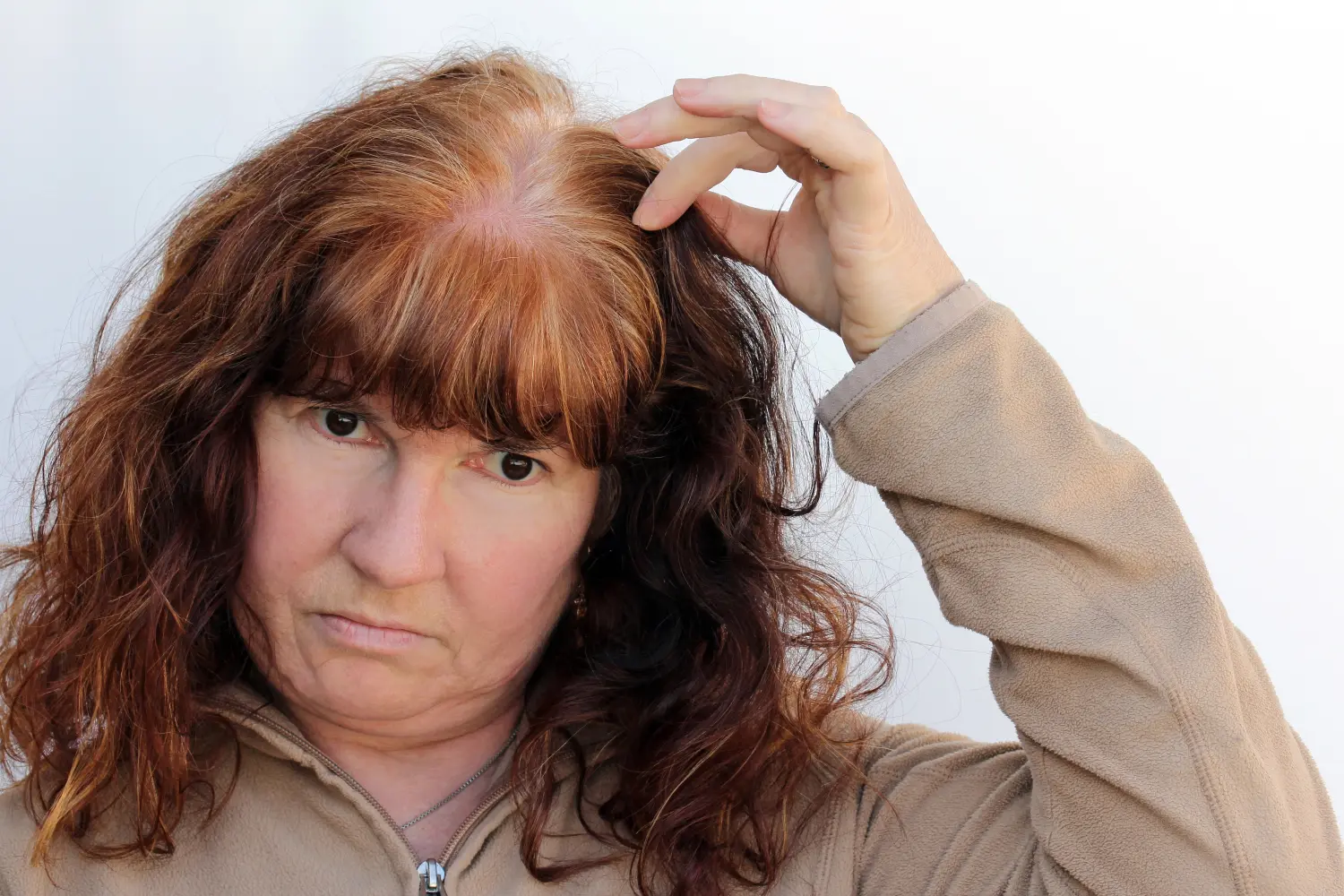
Menopausal hair tends to be more delicate, making it especially vulnerable to damage from heat styling and chemical treatments. Blow dryers, curling irons, straighteners, and harsh dyes can strip away moisture and weaken the hair shaft, leading to more breakage and split ends.
A core part of hair care for menopause is embracing gentler styling habits. Whenever possible, let your hair air-dry naturally to preserve its natural moisture. If you do use heat tools, always apply a heat protectant spray first and use the lowest effective temperature setting. When it comes to coloring or chemically treating your hair, look for gentler, ammonia-free formulas and space out treatments to give your hair time to recover.
Consider experimenting with heat-free styling methods, like braids for natural waves or foam rollers for volume. Not only will this help protect your hair’s integrity, but you might also discover a new go-to style that’s kinder to your strands.
When hair becomes more fragile, as it often does during menopause, split ends can travel quickly up the hair shaft, leading to more breakage and an overall thinner appearance. The simplest way to keep your hair looking healthy and full is to trim it regularly.
As part of hair care for menopause, aim for a trim every 6 to 8 weeks. Even removing a small amount helps prevent split ends from worsening and maintains your hair’s shape and strength. Regular trims also give your stylist the opportunity to check for signs of damage and recommend specific treatments to support healthier growth.
And remember: trimming doesn’t mean losing length. It’s about maintaining the integrity of your hair so it continues to grow well and look its best through every stage of menopause.
Fragile, menopausal hair benefits enormously from small, everyday changes in how you handle it. Rough brushing, tight hairstyles, and abrasive towels can all lead to unnecessary stress and breakage.
When it comes to hair care for menopause, think softness and patience. Swap out your regular brush for a wide-tooth comb to gently detangle without tugging. After washing, use a soft microfiber towel to blot your hair dry instead of rubbing, which can cause friction damage. Avoid tight ponytails or buns that pull on the scalp and weaken hair at the roots — opt for loose, comfortable styles that let your hair breathe.
Little habits like these, practiced consistently, go a long way toward preserving your hair’s health and strength during menopause. Treat your hair with care, and it will reward you with resilience.
Since hormonal changes are at the root of many hair concerns during menopause, it’s worth exploring treatments that help support hormonal balance. While lifestyle changes and nutrition lay the groundwork, some women find that targeted therapies provide an extra layer of support.
For thoughtful hair care for menopause, consider non-prescription options like phytoestrogens — natural compounds found in plants such as soy and flaxseed that may help ease hormonal fluctuations. Over-the-counter scalp treatments and serums designed for menopausal hair often include ingredients that nourish hair follicles and promote healthier growth.
Of course, if hair thinning feels severe or sudden, it’s wise to consult your healthcare provider. They can guide you through options like hormone replacement therapy (HRT) or topical medications that may help slow shedding and stimulate regrowth. Science is evolving, and there are more supportive solutions than ever before.
Stress and menopause often go hand in hand, and unfortunately, chronic stress can accelerate hair shedding and slow regrowth. Elevated cortisol levels (your body’s primary stress hormone) can disrupt the hair growth cycle, pushing more strands into the resting phase and leading to noticeable thinning.
As part of hair care for menopause, it’s crucial to manage stress in ways that support your overall well-being. Practices like mindfulness meditation, deep breathing exercises, yoga, or even daily walks can make a tangible difference in calming your nervous system. Prioritizing sleep is equally important, as restorative sleep helps regulate hormones that influence hair health.
Remember, caring for your mind is just as important as caring for your hair. Stress reduction won’t only help your strands — it will uplift your energy, skin, and overall sense of balance during this transitional time.
When it comes to hair care for menopause, there’s no overnight miracle — but with steady, thoughtful care, you can absolutely see improvements over time. Menopausal hair changes happen gradually, and so does the progress toward stronger, healthier strands.
Stick with your new hair care routines, nourish your body with the right nutrients, and be gentle with your hair daily. Track your progress with photos or notes every few weeks so you can celebrate even small improvements — less shedding, more shine, or baby hairs returning at your hairline. These little victories add up!
Remember, consistency builds resilience. The time and care you invest today will lay the foundation for healthier, more vibrant hair in the months and years ahead.
Menopause brings unique challenges to hair health, but with the right approach, you can protect and even rejuvenate your strands. Throughout this guide, we’ve explored practical strategies to care for your hair during this transitional time.
Key Takeaways:
Your hair care journey during menopause is a marathon, not a sprint. Stay patient, stay kind to your hair, and stay curious!
Related Articles




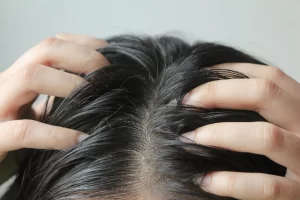
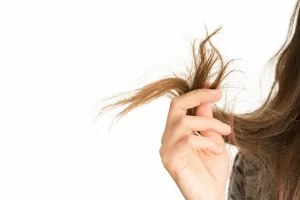



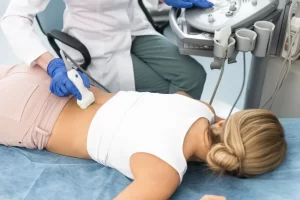
* These statements have not been evaluated by the Food and Drug Administration. This product is not intended to diagnose, treat, cure or prevent any disease.